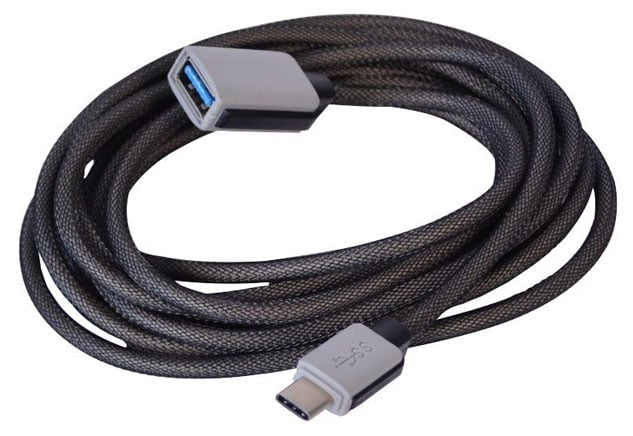USB-C Authentication Program Stops Shoddy Cables From Frying Your Smartphones And Laptops
If you’ve been bitten by crappy USB-C cables over the past year (and there are plenty of them out there circulating in the wild), help is on the way. Amazon made a credible first step by banning USB-C cables that aren’t compliant with specifications issued by the USB Implementers Forum (USB-IF). Now, the USB-IF is taking action to stop fly-by-night manufacturers from damaging expensive electronic devices with cables that are woefully out of spec.
The USB-IF announced a new USB-C Authentication specification at IDF China that uses a standard protocol to identify cables and chargers that have been fully certified. Host devices like smartphones, laptops or tablets will be able to authenticate a cable or charger that is using the data bus or just the USB Power Delivery specification via 128-bit encryption. The host has the ability to grant or deny access before power or data starts to flow over the connection.
The bottom line is, if you’re using a device that doesn’t pass muster with the USB-IF, you won’t have to worry about it frying your precious new Dell XPS 13 or HTC 10. USB-C Authentication will also protect against malware threats (think sneeky USB thumb drives infecting a company’s internal network) using “existing internationally-accepted cryptographic methods for certificate format, digital signing, hash and random number generation.”

“USB is well-established as the favored choice for connecting and charging devices,” said USB 3.0 Promoter Group Chairman Brad Saunder. “In support of the growing USB Type-C ecosystem, we anticipated the need for a solution extending the integrity of the USB interface. The new USB Type-C Authentication protocol equips product OEMs with the proper tools to defend against ‘bad’ USB cables, devices and non-compliant USB Chargers.”
We would be remiss if we didn’t mention Google engineer Benson Leung in this discussion. It was Leung who started a crusade against non-complaint USB-C cables and communicated his findings to the world via Amazon product reviews. Leung’s personal battle to save consumers from encountering possibly defective cables came at a hefty price — a Surjtech 3-meter USB A-to-C cable was so far out of spec and horribly constructed that it not only killed his Twinkie USB PD analyzer, but also his Chromebook Pixel notebook.
Thanks to the actions of Leung and this new initiative by the USB-IF, incidents like the one described above will hopefully be a thing of the past.

